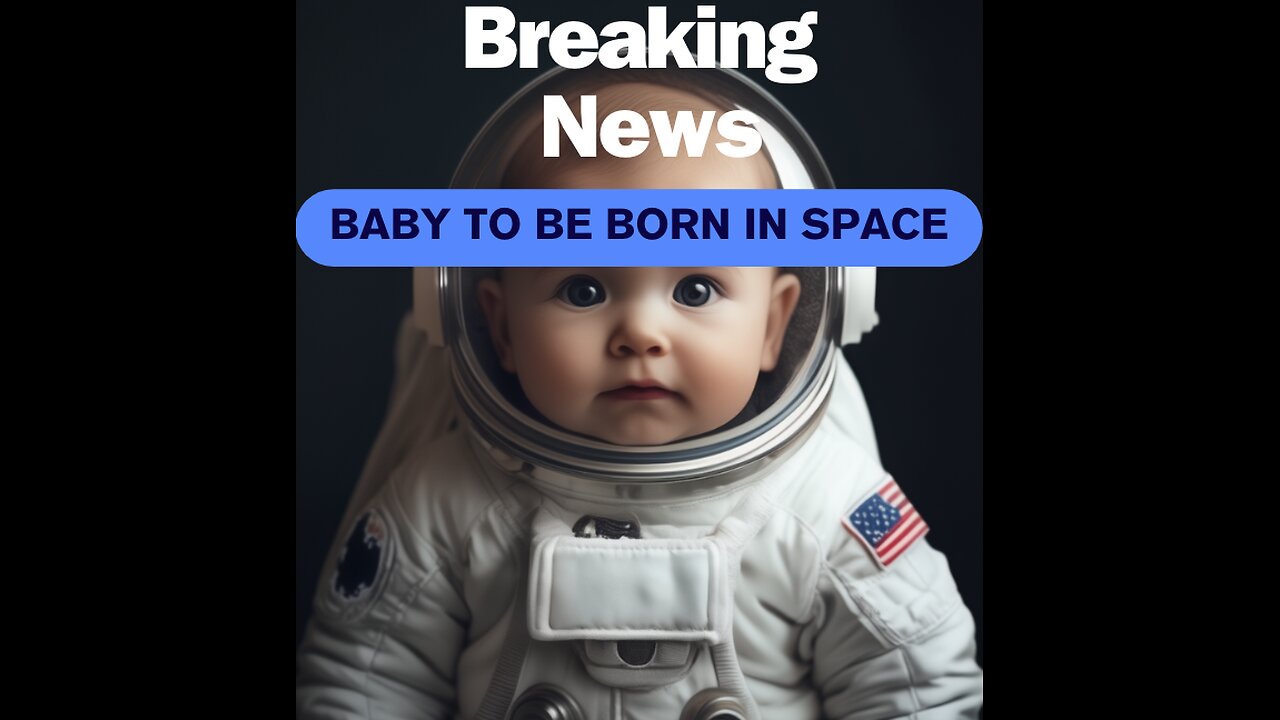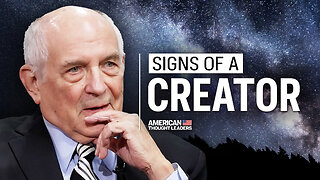Premium Only Content

Extraterrestrial Pregnancy: The Ultimate Adventure or Ultimate Risk?
In a groundbreaking venture that challenges conventional wisdom, SpaceLife Origin, a biotech company, is spearheading a bold mission: to enable the birth of the first (technically) extraterrestrial child. Departing from traditional maternal norms, they propose sending a pregnant woman into the exosphere to give birth, heralding a new era in human reproduction.
Founded on the premise of humanity's imminent colonization of other planets and Earth's escalating environmental perils, SpaceLife Origin envisions a future where space births become commonplace. Their visionary agenda comprises a series of meticulously planned missions, culminating in the historic birth of a child beyond Earth's confines by 2024.
The ambitious endeavor commences with Mission Ark, slated for 2020, offering individuals the chance to safeguard their genetic legacy by storing their "Seeds-of-Life" in a satellite orbiting Earth. This pioneering initiative assures a secure repository for future generations, shielded from terrestrial catastrophes.
Following suit, Mission Lotus, scheduled for 2021, embarks on a revolutionary attempt to conceive a human in space. Utilizing human egg and sperm cells launched to a space station, scientists aim to artificially create an embryo, laying the groundwork for extraterrestrial gestation.
Ultimately, Mission Cradle aims to realize the historic birth of a human being in space, marking the advent of humanity's first "extraterrestrial" baby. However, logistical challenges abound, raising questions about the safety and feasibility of such a feat.
Dr. Egbert Edelbroek, SpaceLife Origin's Chief Strategy & Innovation Officer, encapsulates the profound significance of this endeavor, stating, "It's a small step for a baby, but a giant baby-step for mankind." Yet, amid aspirations of interplanetary colonization, uncertainties linger regarding funding, partnerships, and ethical implications.
As SpaceLife Origin navigates uncharted territory, garnering support from entities like the tentative space nation Asgardia, profound questions emerge about the societal implications and inclusivity of such ventures. Despite the allure of space exploration, the quest for cosmic advancement prompts reflection on its broader societal impact and ethical considerations.
-
 1:33
1:33
Conspiracy Chronicle
10 months agoTrump Declares War on Big Tech Censorship with Bold FCC Pick
1521 -
 35:27
35:27
megimu32
12 hours agoMEGI + PEPPY LIVE FROM DREAMHACK!
163K12 -
 1:03:23
1:03:23
Tactical Advisor
15 hours agoNew Gun Unboxing | Vault Room Live Stream 044
245K36 -
 19:12
19:12
Robbi On The Record
17 hours ago $21.49 earnedThe Loneliness Epidemic: AN INVESTIGATION
76.9K100 -
 14:45
14:45
Mrgunsngear
1 day ago $141.29 earnedFletcher Rifle Works Texas Flood 30 Caliber 3D Printed Titanium Suppressor Test & Review
132K30 -
 17:17
17:17
Lady Decade
1 day ago $11.42 earnedMortal Kombat Legacy Kollection is Causing Outrage
87.3K18 -
 35:51
35:51
Athlete & Artist Show
1 day ago $14.16 earnedIs Ryan Smith The Best Owner In The NHL?
97.3K15 -
 22:56
22:56
American Thought Leaders
2 days agoCharles Murray: I Thought Religion Was Irrelevant to Me. I Was Wrong.
79.4K40 -
 36:22
36:22
Brad Owen Poker
18 hours agoGIGANTIC $17,000+ Pot In BOBBY’S ROOM! TRAPPING Top Pro w/FULL HOUSE!! Big Win! Poker Vlog Ep 326
82.6K11 -
 3:53
3:53
GreenMan Studio
1 day agoRUMBLE RUNDOWN: DREAM HACK SPECIAL W/Greenman Reports
66.4K15